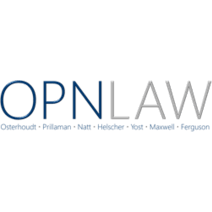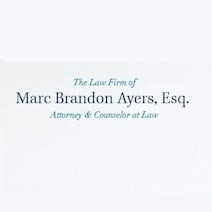Top Lynchburg, VA Family Law Lawyers Near You
209 Mountain Avenue, Roanoke, VA 24002
Lutins & Pilgreen, PC helps clients in the Lynchburg area with their Virginia Family needs.
333 Church Ave SW, Roanoke, VA 24016
Hyatt Browning Shirkey Law Firm, PLC, a reputable Family Law firm in Virginia, serves the Lynchburg area.
Se Habla Español
Free Consultation
Virtual Appointments
120 Day Avenue SW, Suite 200, Roanoke, VA 24016-4110
Johnson Law PLC has years of experience helping clients with their Family needs in Lynchburg, Virginia.
Free Consultation
30 West Franklin Road, Suite 600, Roanoke, VA 24010
Family concerns can be addressed by Eric Roland Spencer, PC. This practice offers legal representation for clients in the Lynchburg, Virginia area.
Se Habla Español
3140 Chaparral Drive, Suite 200-C, Roanoke, VA 24018
Other Nearby Offices
Representing people in Lynchburg, Virginia with their Family issues.
209 S College Ave, Salem, VA 24153
Contact Ayers Law Firm in Lynchburg, Virginia for experienced legal assistance in Family.
Se Habla Español
Free Consultation
25 Church Avenue SW, PO Box 2825, Roanoke, VA 24011
14785 Forest Rd, Forest, VA 24551
2650 Electric Rd, Ste A, Roanoke, VA 24018
133 Salem Ave SW, Suite 100, Roanoke, VA 24011
4320 Brambleton Ave, Roanoke, VA 24018
310 First Street, Suite 1100, Roanoke, VA 24002
3311 Old Forest Rd, Suite 105, Lynchburg, VA 24501
171 Piney Forest Rd, Danville, VA 24540
5440 Peters Creek Road, Suite 104, Roanoke, VA 24019
114 Mountain Avenue Southwest, Roanoke, VA 24016
PO Box 1037, Vinton, VA 24179
15421 Forest Rd, Suite D, Forest, VA 24551
3351 Orange Ave NE, Roanoke, VA 24036
300 Enterprise Dr., Suite D, Forest, VA 24551
13595 Booker T. Washington Highway, Moneta, VA 24121
400 Salem Ave SW, Suite 100, Roanoke, VA 24016
1322 Plantation Road, Roanoke, VA 24012
103 South College Avenue, Salem, VA 24153
1602 Graves Mill Road, PO Box 11315, Lynchburg, VA 24506
Lynchburg Family Law Information
Lead Counsel independently verifies Family Law attorneys in Lynchburg and checks their standing with Virginia bar associations.
Our Verification Process and Criteria
Ample Experience
Attorneys must meet stringent qualifications and prove they practice in the area of law they’re verified in.Good Standing
Be in good standing with their bar associations and maintain a clean disciplinary record.Annual Review
Submit to an annual review to retain their Lead Counsel Verified status.Client Commitment
Pledge to follow the highest quality client service and ethical standards.
What Is Family Law?
Family law is an area of law that covers a wide range of matters relating to family relationships and domestic issues, looking at the individual’s rights and responsibilities within those family relationships. Family law is a complex and sensitive area of law that offers a meaningful way to resolve disputes, protecting the rights and interests of all individuals involved. Some common areas of family law include:
- Child abuse
- Domestic partnerships
- Guardianship
- Paternity
- Prenuptial agreements
- Reproductive rights
- Surrogacy and artificial conception
How Can a Family Law Lawyer Help Me?
An experienced lawyer can give you the knowledge and backing you need to navigate the legal system, finding the best possible results for your case. Because laws are different from state to state, speaking with a lawyer near you is critical in understanding all the elements of your situation and making the best decisions to move forward. A family law lawyer can help with:
- Legal counsel and guidance
- Representation in court
- Negotiation and mediation
- Enforcement of orders
- Privacy and emotional support
- Legal strategy and planning
What Are the Top Questions When Choosing a Family Law Lawyer?
These questions can help you decide if you feel comfortable and confident that a lawyer has the qualifications, experience, and ability to manage your case well. Many lawyers offer free consultations that allow you to understand your options and get specific legal advice before hiring them. Top questions include:
- What is your experience in Family Law?
- Are you familiar with the local courts and judges?
- Have you managed cases like mine before?
- How do you manage potential conflicts of interest?
- What are the potential outcomes of my case?
- What are your fees and billing structure?
Tips for Hiring a Lawyer
Taking the time to find a lawyer who is right for you and will represent your best interests is an important first step in protecting your rights. Find a lawyer who understands your case, knows your needs and goals, and has the experience to get the best outcome. Things to do:
- Ask for recommendations
- Research lawyers online
- Schedule consultations
- Review experience and expertise
- Talk about billing and fees
- Trust your instincts






